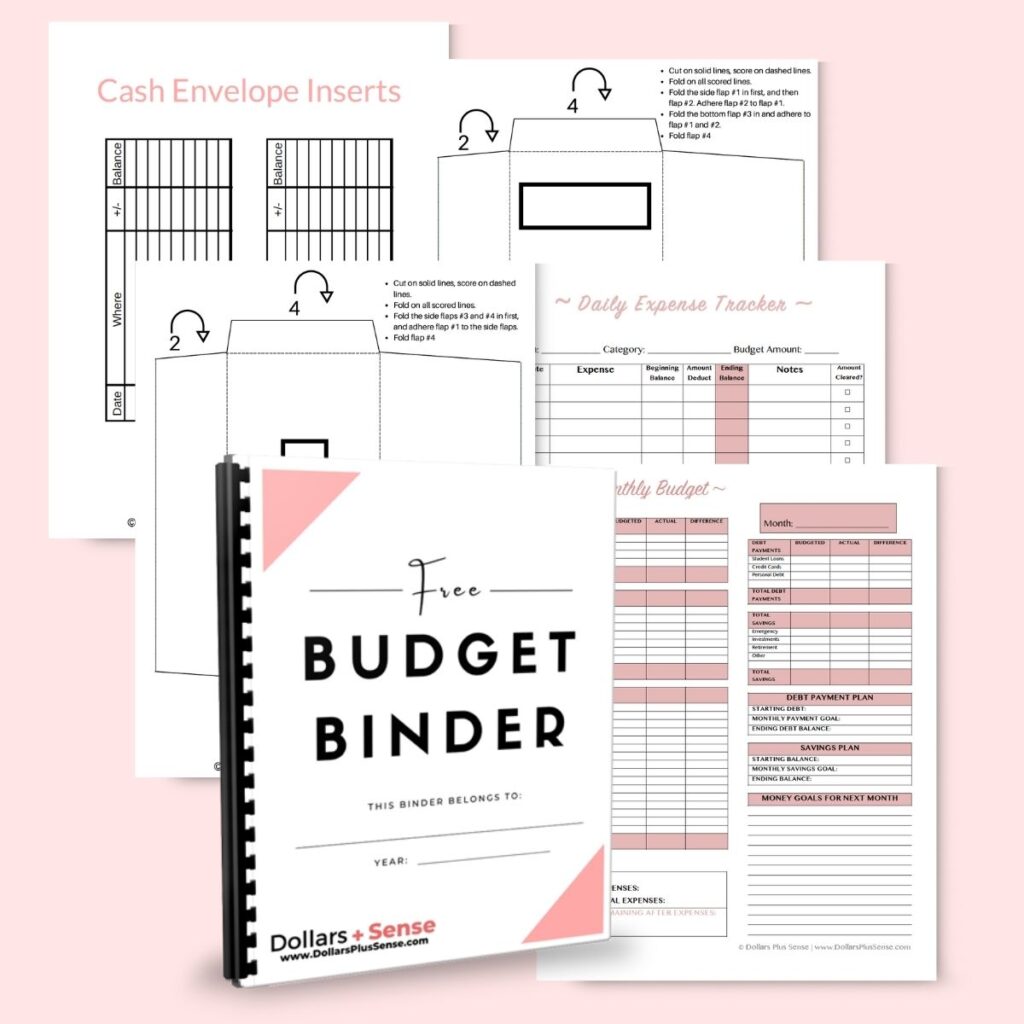Last Updated January 26, 2021
Are you ready to drastically reduce your housing expenses so you can be financially free? If so, find out 3 easy ways you can drastically cut your housing expenses and save more money.
What Are Considered Housing Expenses?
What I mean by housing expenses is basically anything you have to pay for to keep a roof over your head. Some housing expenses include things such as:
- Rent/Mortgage
- Property Taxes
- Housing Insurance
- Housing Maintenance
However, in this article, I’m going to focus on ways to cut your rent/mortgage because that’s where most of your money goes out of all the housing expenses.
Why Is It Important To Cut My Housing Expenses?
It’s important to cut your housing expenses because if you want to save the most money, you should focus on cutting expenses in your high spending category. For most of us, our housing expense is the largest expenditure. By saving just a little bit on the things you spend the most money on every month, you can put that extra money towards savings or paying off debt.
For example, let’s say you earn $5,000 a month and 30% of your money goes to housing. That means you spend $1,500 every month on housing. Now imagine if you can get your housing expenses down to 25% of your income. You would now be spending $1,250 for housing—that’s a $250 savings every month, and a $3,000 savings every year!
Now imagine you spend 10% of your $5,000 income on food and dining out. That’s $500 every month. To save the same amount of money, you would have to cut your food budget by HALF! I bet it’s a LOT harder to be more disciplined about not going out to eat than it is to just live in a cheaper house or neighborhood.

So as you can see, reducing your housing expenses by just 5% is MUCH easier than reducing your food budget by 50%. And this is why I recommended focusing on cutting expenses in high spending categories before cutting small expenditures.
I first got the idea of cutting housing expenses from reading the book “Set for Life: Dominate Life, Money, and the American Dream” by Scott Trench. This book is a must read! It influenced me to change the way I looked at my largest expense—housing.
3 Ways To Cut Housing Expenses
Before we get started, you need to have a budget first. Having a budget allows you to see how much your expenses are and track if you’re making progress with cutting your expenses. If you’re just starting out, you can download this FREE Monthly Budget Worksheet.
However, if you want something a little more sophisticated, you can get my Budget Template. This is the template I actually used to save over 50% of my income, and it is the same template I use to this date.
Once you have your budget set up and know where your money is going, we can now focus on ways to cut housing expenses.
Related Article: How To Use A Monthly And Yearly Household Budget Spreadsheet
1. Live With Roommates

If You’re Single
As a single person, the best way to eliminate or significantly reduce housing expenses is to have one or more roommates—the more roommates the better.
Let’s use where I live, New York City, for example. Assume you found an affordable one-bedroom in your preferred area of Brooklyn for $1,500 per month (and yes this is affordable for Brooklyn). Instead of spending $1,500 for a one-bedroom, I would look for a three-bedroom in the same area.
A nice three-bedroom in the same area of Brooklyn costs approximately $2,400 per month according to Streeteasy.com. By renting a three-bedroom apartment with roommates, your housing expenses will be reduced from $1,500 to $800 a month—saving you $700 per month.
In other words, by living in a shared space you almost cut your housing expenses in half.
If You Have A Family

Families can also find ways to split their housing expenses with someone else. Is there an extra room in your house or apartment that you can Airbnb or rent out? Or maybe you can rent out a guesthouse or in-law suite? If you’re uncomfortable living with a stranger, consider living with other people in your extended family.
If your family cannot share a space with an additional person, or you’re uncomfortable with having another person around your family, I would recommend moving to a more affordable part of town to save on housing.
However, families, in general, make up for their inability to share housing by having the benefit of two-income earners.
2. Buy A Less Expensive Home

Another way to cut housing expenses is to buy a less expensive home. If you own a house, consider selling and moving to a smaller house or condo.
An additional option is to buy a fixer-upper at a discount. You could potentially cut your mortgage payment with a less expensive home and significantly lower your overall mortgage debt.
3. Move To A Cheaper Neighborhood

My next recommendation to cut housing expenses would be to move to a more affordable part of town. Instead of living in your ideal part of town, I would consider moving a few miles away to a less expensive neighborhood.
Going back to our previous example, our New Yorker could move just 6 miles from their preferred part of Brooklyn to a less expensive area in Queens. In Queens, you can find a nice affordable three‑bedroom for $2,000 per month.
This would bring your housing costs down even further from $800 to approximately $667 per month. You are now saving around 55% on housing by choosing to live with roommates in a cheaper neighborhood, than living alone in the more expensive part of town.
How To Get Out Of Your Current Living Situation
You may be reading this article and think, “Moving to a more affordable part of town and sharing a space sounds great but I’m locked into my lease for another year!” Or you may be thinking, “I can’t just pick up and move, I just bought this house!” Or “If I sell my house now, I would be taking a loss.”
However, taking a short term loss might end up saving you more money in the long run. Here are some ways you can get out of your current living situation with the lowest financial impact and save more money in the long run:
How To Reduce Housing Expenses If You Are Leasing

1. Terminate Your Lease Early
If you are leasing, talk to your landlord to see if they’re willing to let you terminate your lease early at no penalty (or a small penalty of one or two months rent or less). In some cases, paying a penalty to break your lease may be worth it.
For example, assume you’re living in a one-bedroom that costs $1,500 per month. However, you’re willing to move in with some friends into a three-bedroom in a more affordable neighborhood that costs $2,000. If you move in with your friends, your portion of the rent will be $667 per month — saving you $833 per month if you move.
Assume your landlord will charge you a two-month penalty ($3,000) for breaking your lease. It would still make financial sense to break the lease because you would recoup that cost in less than 4 months ($3,000/$833 = 3.6 months).
It does not make sense to lose almost $10,000 in savings over the next year, to save $3,000 in the short term.
2. Assign Your Lease

If it’s too costly to break your lease, an alternative is to assign your lease. Assigning your lease means the incoming tenant will be responsible for the terms of the lease and will pay the rent directly to the landlord. As a result, your relationship with the landlord will end.
Most landlords are open to this as long as you pay the costs associated with finding a new tenant, or find a qualified tenant on your own.
3. Sublet Your Space
If your landlord will not allow you to break or assign your lease, consider subletting your space. With a sublet, you will have a “subtenant” and they would pay the rent to you. However, you would still be responsible to pay your landlord under the terms of your lease.
I would only sublet my space if I could not assign or terminate my lease. The reason is if your tenant decides not to pay, you will be responsible to pay the rent in your old residence and your new residence.
This may also be difficult if your landlord does not allow subletting. So make sure to review your lease to see if subletting is allowed or prohibited.
How To Reduce Housing Expenses If You Own Your Home

If you want to get out of your house, but you will lose too much money selling it, consider renting it out. Keep in mind that the rent you charge needs to cover much more than just the mortgage. The rent needs to be able to cover the following:
- Mortgage
- Property Taxes
- Common Charges (if applicable)
- Property Insurance
- Property Maintenance
- Property Manager (optional)
Before deciding to rent out your home, make sure the rent will cover all of those things. You also want to leave yourself a little bit of a cushion in case anything breaks…and something always breaks, trust me!
If the rental prices where you live are not high enough to cover your mortgage, consider a short-term rental with Airbnb or VRBO. You can usually earn more money with a furnished short-term rental than an unfurnished long-term rental.
If all fails, consider selling and taking a loss. First, calculate how much you will save every month by moving. Then do the calculations to see how long it will take for you to recover from your loss. Use this formula:
(Total Loss) ÷ (Monthly Savings) = How Many Months It Will Take You To Recoup That Loss
If it will only take a few months to recover, I would sell and take a loss. If it will take a few years to recover, I would hold on to the property (as long as you live in an area where the property value is appreciating).

Before you decide to move, make sure you take into account all the costs of moving. Costs such as:
- Realtor Fees
- Moving Expenses
- Attorney Fees
- Taxes
What If I Can’t Move?
If for some reason you absolutely cannot move right now, there are still ways you can save money on your housing. You can rent out a spare bedroom or living area.
If you don’t have a spare bedroom because you live in a small space—like a studio or one-bedroom—see if you can part off some of your living space. For example, some New Yorkers convert their one-bedroom to a “two-bedroom flex”.
A “two‑bedroom flex” is an apartment with a space large enough to be walled off and used as a bedroom. Usually, the living room or dining room is parted off by a wall or room divider to form a second bedroom. Sometimes there is still enough space to have a living area after the one-bedroom is converted to a two-bedroom.
If you want something that’s affordable and not too permanent, you can use a room divider. If you want something a little more solid, you can also look into using pressurized walls.
Pressurized walls are temporary walls that apply pressure between the floor and ceiling to hold the walls in place. However, pressurized walls will be a lot more expensive than a room divider and they might not be allowed in some rentals.
Summary
The New Yorker in my example was able to save over $800 by changing their biggest expense—housing. You will save the most money by focusing on ways to cut your high spend area. You can drastically cut housing expenses by: 1) living with roommates, 2) moving to a cheaper neighborhood, or 3)buying a cheaper house.
Related Articles:
- 7 Ways To Save Money On Transportation Expenses
- 9 Ways To Save Money On Food
- Reduce Utility Bill: 10 Easy Ways To Save Money On Utilities
If you want to remember this article, post it to your favorite Pinterest board.















6 Comments on 3 Easy Ways To Drastically Cut Housing Expenses And Save Money